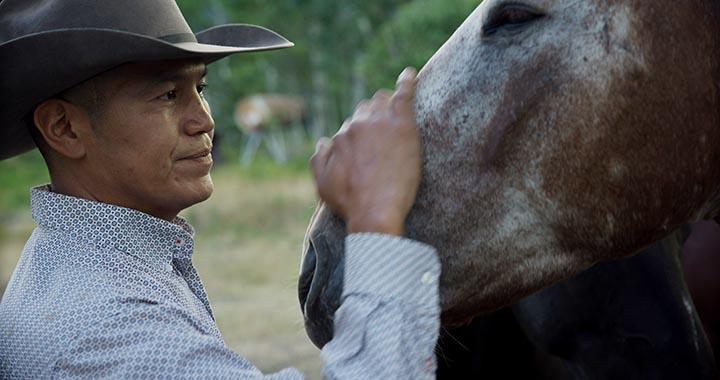rewrite this content and keep HTML tags
Four Indigenous-themed movies are part of this year’s Vancouver International Mountain Film Festival.
This includes the documentary Shaped By Wild, which features the stories of those who live among the mountains, forests and by the ocean in the Coast Mountain Range in British Columbia.
In the film is Jimmy Lulua, who recently completed a five-year term as the chief of the Xeni Gwet’in First Nations. Lulua is also one of five men that embarked on a 76-kilometre journey by foot over the Homathko Icefield from Chilko Lake to Bute Inlet.
“My belief is that stories only become more real when you’re in that location,” Lulua said in the film. “So, you have to go there to make it more real.”
The trip was once considered a sacred rite of passage for those from his First Nation. They would make the journey from their remote community in part to trade items with others living along the coast.
“The pressure of finishing the trip, it does make us nervous,” Lulua said. “So many things could go wrong.”
A grizzly bear encounter or an avalanche are among the uncertainties of travelling the icefield. River crossings are also concerns.
“We’ve prepared as much as we can,” Lulua said. “And that’s all you can do. But I guess anything can happen.”
Lulua explained that his First Nation had gone to war back in 1864. The First Nation had declared war on those coming into the territory and mistreating people.
“Looking at the history of our Nation, I don’t think a chief has gone back there since the war,” he said. “So, it’s very important for myself to be able to walk back across there. I think a lot of healing comes from that.”
Lulua said it was vital he be included amongst those taking part in the journey.
“As a chief, we’re obligated to follow stories put in front of us,” he said.
Lulua said that his trip had already been planned when the call came from filmmakers, wondering if they wanted the journey included in Shaped By Wild.
“When the stars aligned, the stars aligned,” Lulua said of their inclusion in the documentary.
Lulua wasn’t just interested in taking part himself because he was the chief at the time.
“The trip means probably different (things) to many people,” he said. “But from my point of view, it’s honouring our ancestors. Sometimes that needs to happen to figure out where you come from.”
The Vancouver International Mountain Film Festival began with in-person screenings on Nov. 14 and continues until Nov. 19.
Shaped By Wild will screen tonight, Nov. 16, at the Rio Theatre in Vancouver as part of the festival’s Stories Across The Land segment.
The festival also has online screenings available to be streamed any time through Dec. 10.
Information on how to obtain online access to 25 films celebrating snowsports, climbing, biking, mountain culture and the environment is available at https://vimff.org/online-shows/. Find Shaped by Wild under the Stories Across The Land section, as well as Keepers of the Land, which will be shown in person on Nov. 18 at Vancouver’s Centennial Theatre. Windspeaker wrote about this film in a Sept. 6 article. https://windspeaker.com/news/windspeaker-news/first-nations-film-stewardship-responsibilities-under-consideration
Keepers of the Land is a 29-minute film produced by the Kitasoo Xai’xais Nation, located in Klemtu on Swindle Island on the coast of B.C.
The movie is about the stewardship work the small First Nation has undertaken in its community.
Then, on Nov. 19, a film titled Racing For The Next 7, will be screened at the Rio Theatre. This film is about an Indigenous women’s mountain biking team, which prepares for and competes in a grueling race.
The festival also included Slides on the Mountain, a film shown in person during the festival’s opening night. This film is about two Lil’wat Nation brothers who train to ski a challenging mountain.
SUPPORT US!
Windspeaker is owned and operated by the Aboriginal Multi-Media Society of Alberta, an independent, not-for-profit communications organization.
Each year, Windspeaker.com publishes hundreds of free articles focused on Indigenous peoples, their issues and concerns, and the work they are undertaking to build a better future.
If you support objective, mature and balanced coverage of news relevant to Indigenous peoples, please consider supporting our work. Whatever the amount, it helps keep us going.
Read the full article here


